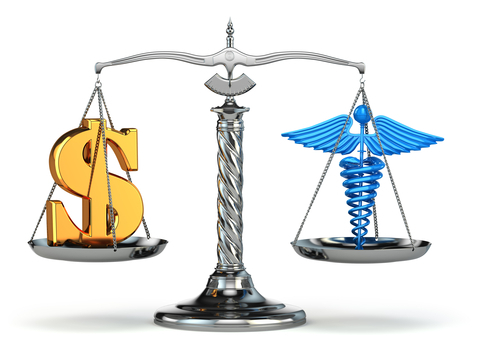Warren Buffet once said, "Price is what you pay. Value is what you get."
In a time when the price tag on health care continues to rise, and more of the cost burden is being shifted to patients, there is a crucial conversation taking place in the cancer world about how value is defined. It led us at the Cancer Support Community to ask - do patients define value the same way as the health care system? And we sought to get answers by first asking the experts- the patients themselves- a single question: "When considering your cancer experience, how do you define value?" Thousands answered by participating in our Cancer Experience Registry, a panel of cancer patients. The data was so compelling that we launched additional registries for specific cancers, starting with metastatic breast cancer "mbc". While there are some consistent themes across the various diagnoses, people with different kinds of cancer have issues that are more specific, or even unique to their diseases. At the same time, we researched traditional definitions of value in health care so that we could compare them with the definitions put forward by people with mbc. The disconnect between the two was staggering - but maybe not surprising.
There are many different stakeholders in health care, therefore, many different definitions of value. Most of the definitions we examined included some combination of cost, productivity, toxicity, and quality of life. The Institute of Medicine defines value as the "best care at lower cost." Many ask the question, "Does the benefit of the care equal the dollars spent?" In cancer care, we have seen dramatic increases in the cost of care - higher than the increases in overall health spending - but only modest gains when it comes to survival.
We examined responses from 769 patients with metastatic breast cancer. The results of the survey were recently presented at the 5th Annual Conference of the Association for Value-Based Cancer Care. 38.4% of respondents defined value in terms of "personal value." For example, one patient defined the term as, "Information and appropriate communication of that information at the right time and the right place." Another patient replied by saying, "Whatever is going to give me integrity." On the other hand, only 7.4% of patients defined value in an economic context. For example, one patient said, "Value in cancer treatment is getting the best options at the lowest cost, presented to you in a manner that is easily comprehended." Many of the responses related to value centered around quality of life and feeling well enough to engage in family activities and celebrations, hobbies, work and other functions that bring meaning to patients.
In addition, patients told us that they would like more transparency in their health care - a clearer understanding of all of the treatment options available to them and what their total care will cost - so that they are making decisions and trade-offs with their eyes wide open. How can patients think about value in the traditional sense when they don't know what is on the table? Some patients tell us that they don't necessarily see commensurate value in high cost care that will significantly impact their families financially, but will only deliver a few extra weeks or even months of life. Health care has become so complex and tangled that is it nearly impossible to "pull back the curtain" to understand and answer fundamental questions: how much do my medicines cost? How about the visits to doctors and specialists? Scans and other tests? What about hospital costs? I would say you have to be a PhD to figure it out, but we know many PhD's who have yet to crack the code!
There are several critically important questions that we need to ask ourselves as we seek a comprehensive definition of value:
- Does more expensive care equal better outcomes?
-How do we create a truly integrated model of quality cancer care that includes the things that matter to patients?
- How do we start to think about a value model that allows for patients' preferences and priorities to be included?
- How do we allow those subjective measures to be included in an otherwise objective formula?
It is incumbent upon all of us in cancer care to engage in conversations with patients, not just about patients, in order to arrive at a definition of value that includes not only an economic formula related to cost and outcomes, but that also incorporates the patient's value system - his or her preferences and priorities - in order to deliver a quality care model with transparency and integrity. It is a big task, but our Cancer Experience Registry has taught us that patients are ready to talk and share, and sometimes what they have to say will go against conventional wisdom. Patients are the experts - isn't it time we start listening a little more closely?

